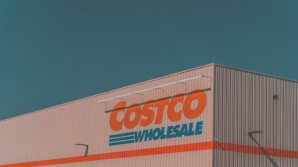European trade start-ups in 2017, flexibility will be crucial
In the short term, European companies looking to start-up overseas trading face important currency issues and an uncertain medium-term outlook across multiple fronts. There will be uncertainty surrounding trade policies under the new US Administration and UK Brexit developments will also have an important impact. Additionally, Euro-zone political developments will also be a potentially important destabilising influence.
Both the economic and political environment could change rapidly within relatively short time-frames with high volatility in exchange rates.
Overall, companies will need to have a crucial element of adaptability and flexibility across all aspects of trade operations with a particular emphasis on market selection and cost control (with a particular interest in collection accounts abroad to save on associated costs).
UK vote changes the trade landscape
Although much of the attention following the 2016 UK vote to leave the EU has focussed on the UK outlook, the decision will also have very important implications for the Euro-zone and wider European Union economies.
For Euro-zone start-up businesses looking to develop overseas trade, exchange rates and political developments will have a major impact during 2017.
Following June's EU referendum vote to leave the EU, Sterling was immediately subjected to heavy selling pressure with the Euro gaining by around 18% by the end of October and the Euro remains close to 13% above level seen immediately before the referendum.
For companies looking to start-up an export business focussing on the UK, currency moves will have a substantial impact. Assuming the exports are priced in Euros, the Sterling cost will be substantially higher than before the EU referendum.
In the short term, therefore, exporters will face much stronger competition from UK producers. Over the medium term, the cost differences will gradually narrow, as UK domestic costs start to increase.
For now, it will be essential for companies looking to export into the UK market to keep a very tight control on costs. The competitive position could be boosted by sacrificing margins although extreme caution is needed as such a strategy could quickly lead to unsustainable losses.
There are, however, strong opportunities for European companies looking to import goods from the UK. Assuming imports are priced in Sterling, costs in Euro terms will now be significantly lower. Start-up companies will be in a strong position to compete against domestic suppliers, although potentially across only a narrow product range.
UK retail and tourism opportunities
There are notable developments in the retail sector on two main fronts which will provide significant opportunities. Firstly, there is scope for importing UK branded goods into the Euro-zone at very competitive costs, especially in the food and luxury-goods sectors.
There are also big potential opportunities in the travel sector given that there will be a strong increase in Euro-zone consumers looking to travel to the UK in order to buy cheap goods in the UK.
Sterling weakness will also trigger a surge in tourism visits to the UK which will provide strong opportunities for companies serving the travel sector.
Brexit uncertainty is a long-term issue
Uncertainty surrounding the UK Brexit process will continue to dominate the economy in the short term. At this stage, the UK government is looking to trigger Article 50 which will start the exit process before the end of March and negotiations then need to be concluded within two years.
There will be a high degree of uncertainty surrounding future trade relationship for EU countries in relation to the UK economy.
Companies looking to start-up international trade opportunities will need to be careful to avoid very long-term contracts as there is an important risk that companies would not be able to deliver under new trade regimes.
The biggest risk for European companies would be tariffs and trade barriers. Companies need to ensure there is enough flexibility to cope with any potential imposition of tariffs on imports from the UK.
US market - best conditions for 14 years.....
In terms of exporting to the US, start-up companies looking purely at the exchange rate should see the current exchange rates as an extremely important opportunity.
The Euro declined to lows around 1.0350 against the dollar late in 2016 which was the lowest level for close to 14 years. Although there has been a limited recovery since then, the overall competitive position remains extremely strong.
Looking at the past 10 years EUR/USD has averaged just over 1.3000 with a peak close to 1.60. The US economy is registering solid growth and Euro-zone companies are well placed, especially for German companies.
The overall competitive position for companies in many peripheral countries is less favourable given that internal competitiveness has been weakened, but relative position will be strong in the US market.
..... but policy uncertainty is a major threat
The election of Trump as US President will also lead to major uncertainty surrounding US trade policies and also requires caution from European companies looking to start exporting to the US.
Trump's top trade advisor Navarro has recently criticised Germany for operating with a substantially undervalued Euro and accused the country of exploiting the US. Trump has already pledged to renegotiate NAFTA and there has been a wider threat to impose tariffs on imports into the US.
importing UK branded goods into the Euro-zone at very competitive costs, especially in the food and luxury-goods sectors.
There are also big potential opportunities in the travel sector given that there will be a strong increase in Euro-zone consumers looking to travel to the UK in order to buy cheap goods in the UK.
Sterling weakness will also trigger a surge in tourism visits to the UK which will provide strong opportunities for companies serving the travel sector.
Brexit uncertainty is a long-term issue
Uncertainty surrounding the UK Brexit process will continue to dominate the economy in the short term. At this stage, the UK government is looking to trigger Article 50 which will start the exit process before the end of March and negotiations then need to be concluded within two years.
There will be a high degree of uncertainty surrounding future trade relationship for EU countries in relation to the UK economy.
Companies looking to start-up international trade opportunities will need to be careful to avoid very long-term contracts as there is an important risk that companies would not be able to deliver under new trade regimes.
The biggest risk for European companies would be tariffs and trade barriers. Companies need to ensure there is enough flexibility to cope with any potential imposition of tariffs on imports from the UK.
For any more concerns and questions about payment optimization, have a look at InternationalMoneyTransfers.org - a leading foreign exchange guide.



















